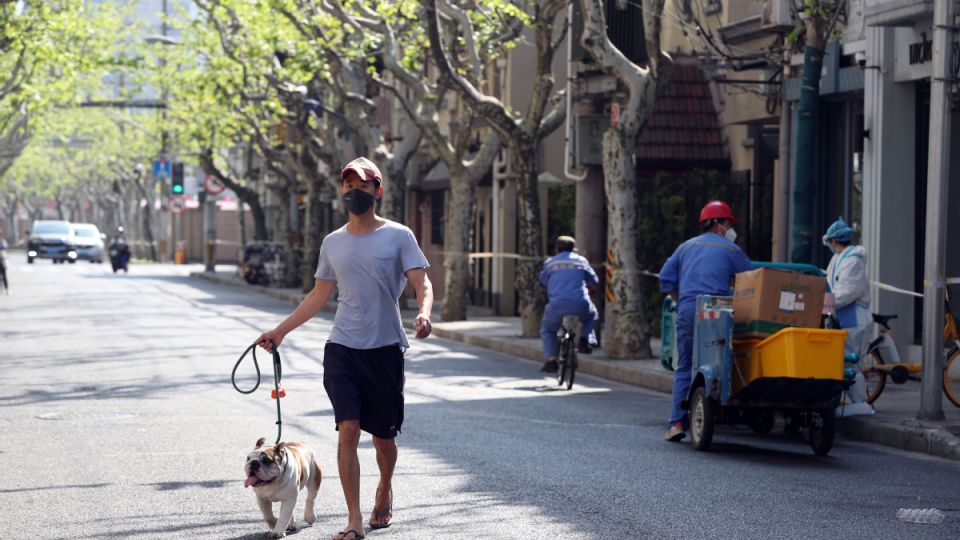May 4, 2022
SHANGHAI – About 60 percent of city’s population live in zones with no cases for 2 weeks
More Shanghai residents living in areas where zero COVID-19 community transmission has been achieved have been permitted limited outdoor activities during the five-day Labor Day holiday after declines in the city’s daily tally of new infections.
New infections in Shanghai continued to drop slightly on Sunday with 727 new confirmed local cases and 6,606 asymptomatic infections, according to the Shanghai municipal health commission.
As of Sunday, over 15.1 million residents, or around 60 percent of the city’s permanent population, were living in precautionary zones with no report of infections over the past two weeks, according to Zhao Dandan, deputy director of the health commission.
Among the rest, 2.76 million residents are in lockdown zones and 5.51 million in controlled zones, where strict epidemic control measures are still being implemented based on the latest round of mass nucleic acid and antigen test results.
Many compounds that belong to precautionary zones have since May 1 allowed one person per family to leave the community for no more than four hours every day.
In Vanke Baima Garden Community, Songjiang district, a precautionary zone since May 1, residents were excited to get out and about again within Xinqiao town after a month-long lockdown. Still wearing masks on streets, some rode bikes, some walked their dogs, while others headed out for shopping, according to Shanghai Morning Post.
Few public places have restarted operations in the area so far, according to a resident surnamed Zheng from the community. Only some supermarkets, convenience stores and pharmacies have resumed business to meet essential needs of residents.
Staff members have ensured social distancing among customers and the implementation of strict prevention and control measures such as wearing masks.
Zheng, however, didn’t rush to stores on Sunday, but first took a free nucleic acid test near the residence, due to sufficient daily necessities at home and the fact that stores require negative nucleic acid reports within 48 hours to enter.
“The test result could be used the next day. Some neighbors went to nearby pharmacies for medications. It feels great with no need to bother others,” Zheng said.
To ensure efficiency in the fight against the epidemic, the city has developed guidelines on the disinfection of public settings and trained over 4 million professionals to enhance capabilities of environmental disinfection.
Over 1,200 local firefighters have joined forces for city-wide disinfection, along with neighborhood committee members, volunteers and organizations from sister cities, including Hubei province’s Wuhan, Gansu province’s Lanzhou and Jiangsu province’s Nantong.
“We focus on environmental cleaning in quarantine facilities housing people infected with or exposed to COVID-19, as well as in major public places, including construction sites, office buildings and supermarkets,” Liu Duo, the city’s vice-mayor, said at a news briefing on Monday.
The briefing also covered government support for technology firms to manage work permits for international staff through remote services of video verification and green channels, as offline services have been temporarily suspended.
Other preferential policies include increasing the amount of each innovation voucher from 300,000 yuan to 500,000 yuan ($45,300 to $75,500) for small-to-medium science and technology enterprises to purchase scientific research services.
Since April 2, when the preferential policies became effective, local technology firms have applied for 43.5 million yuan in total. The first batch of innovation vouchers worth over 10 million yuan has been provided for nearly 200 enterprises and service institutions.
“Priority support will be given to technology companies contributing to epidemic prevention and control,” Liu said.


